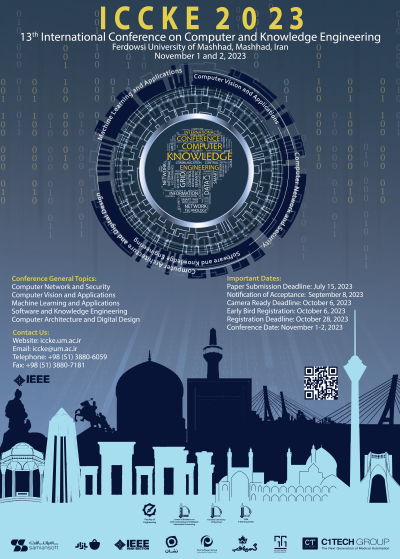0% Complete

Authors :
Keywords :
Abstract :
List of archived papers
Maryam Ghorbanvirdi - Sayyed Majid Mazinani
Hamid Ahmadabadi - Omid Nejati Manzari - Ahmad Ayatollahi
Negin Shafinezhad - Hamid Abrishami - Saeid Abrishami
Sina BaniasadAzad - Seyed Mohammadreza Mousavi mirkolaei
Mohammad Shahraeini - Shahla Khormali - Ahad Alvandi
Houmaan Chamani - Zhivar Sourati Hassanzadeh - Behnam Bahrak
Saeed Sarbazi-Azad - Ahmad Akbari - Mohsen Khazeni
Bahareh Kaviani Baghbaderani - Afsaneh Hasanebrahimi - Ahmad Kalhor - Reshad Hosseini
Ervin Gubin Moung - Toh Sin Tong - Maisarah Mohd Sufian - Valentino Liaw - Ali Farzamnia - Farashazillah Yahya




